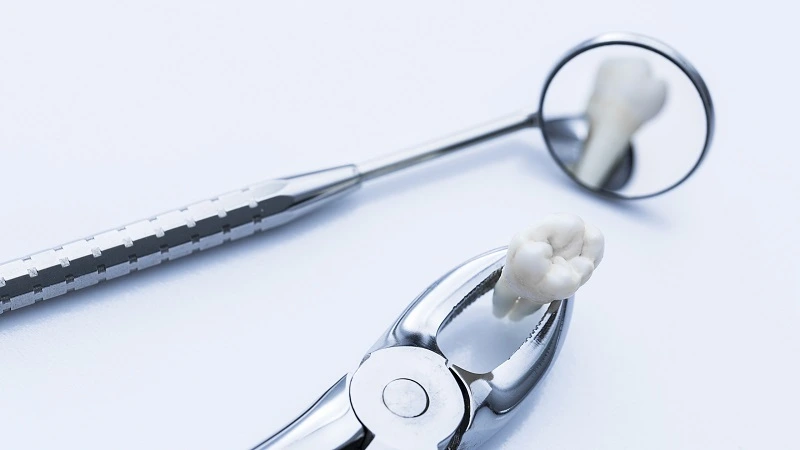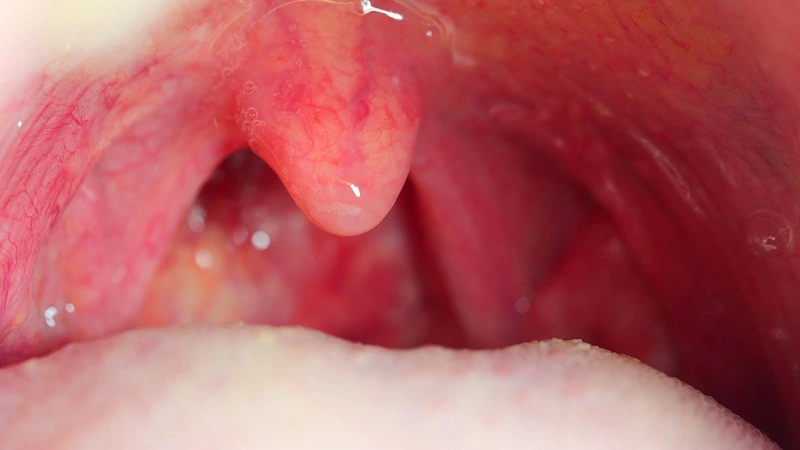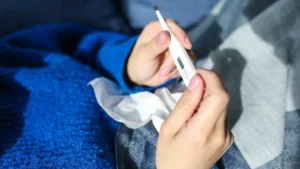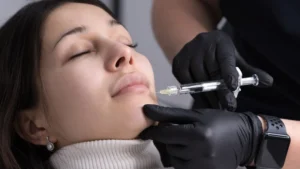Wisdom teeth removal is a common dental procedure that is performed to alleviate overcrowding or impaction of the wisdom teeth. It is a relatively safe and straightforward procedure, but some patients may experience sore throat after wisdom teeth removal.
A sore throat can be caused by various factors such as:
- Inflammation of the tissues in the mouth,
- infection,
- use of a breathing tube during surgery, or
- anesthetic complications.
Understanding the cause and proper management of sore throat is crucial for ensuring a smooth recovery process. In this blog post, we will delve into the causes, symptoms, and preventive measures for sore throat after wisdom teeth removal.
Can Dental Issues Cause Sore Throat?
Yes, dental issues can cause a sore throat. For example, if you have gum disease, your gums may become infected and swollen, leading to a sore throat. Similarly, if you have an abscessed tooth, the infection can spread to your tonsils and cause a sore throat.
Additionally, some dental procedures like cleaning or surgery can cause a temporary sore throat as a side effect. It’s always best to consult with a dentist or physician if you’re experiencing persistent symptoms.

Causes of Sore Throat After Wisdom Teeth Removal
Sore throat is a common after-effect of wisdom teeth removal, and it can be caused by several factors. Some of the common causes of sore throat after wisdom teeth removal includes:
- Inflammation of the tissues in the mouth: The removal of wisdom teeth can result in swelling and inflammation of the tissues in the mouth, which can cause discomfort and pain in the throat.
- Infection: The surgical site in the mouth can become infected, leading to sore throat and other symptoms such as fever, redness, and swelling.
- Use of a breathing tube during surgery: In some cases, a breathing tube may be used during wisdom teeth removal to help the patient breathe. This tube can cause irritation and soreness in the throat after the procedure.
- Anesthetic complications: The use of anesthesia during wisdom teeth removal can also cause a sore throat and other side effects such as nausea, headache, or dizziness.
It is important to note that sore throat after wisdom teeth removal is usually temporary and can be managed with proper care and treatment. However, if the symptoms persist or worsen, it is advisable to consult with a doctor or dentist for proper evaluation and treatment.

Symptoms of Sore Throat After Wisdom Teeth Removal
Sore throat after wisdom teeth removal can cause several symptoms, including:
- Pain and discomfort in the throat: The most common symptom of sore throat after wisdom teeth removal is pain and discomfort in the throat, which can range from mild to severe.
- Redness and swelling in the throat: Inflammation of the tissues in the mouth can cause redness and swelling in the throat, which can be accompanied by pain and discomfort.
- Difficulty swallowing: Sore throat can make it difficult for a person to swallow food or liquids, leading to discomfort and difficulty eating.
- Hoarseness of voice: Inflammation of the tissues in the throat can cause hoarseness of voice, making it difficult for a person to speak clearly.
It is important to note that these symptoms may vary from person to person, and some individuals may not experience any symptoms at all.
If the symptoms persist or worsen, it is advisable to consult with a doctor or dentist for proper evaluation and treatment.

Prevention and Management of Sore Throat After Wisdom Teeth Removal
Prevention and proper management of sore throat after wisdom teeth removal is crucial for ensuring a smooth recovery process. Some of the ways to prevent and manage sore throat after wisdom teeth removal include:
- Preoperative preparation and postoperative care: Proper preoperative preparation and postoperative care can help reduce the risk of sore throat after wisdom teeth removal.
This includes following the instructions provided by the dentist or oral surgeon, avoiding smoking, and avoiding alcohol and spicy foods for a few days after the procedure.
- Medications for pain management and reducing inflammation: Over-the-counter pain medications and anti-inflammatory drugs can help reduce pain and inflammation in the throat after wisdom teeth removal.
- Use of salt water gargles and warm compresses: Salt water gargles can help soothe the throat and reduce swelling, while warm compresses can help reduce pain and discomfort in the throat.
- When to see a doctor: If the symptoms of sore throat persist or worsen after wisdom teeth removal, it is advisable to consult with a doctor or dentist for proper evaluation and treatment.

It is important to follow the instructions provided by the dentist or oral surgeon and to seek proper treatment if necessary to ensure a smooth recovery process.
In some cases, sore throat after wisdom teeth removal can be a sign of a more serious condition, and prompt medical attention is necessary to prevent complications.
Conclusion
In conclusion, sore throat is a common after-effect of wisdom teeth removal, and it can be caused by several factors such as inflammation of the tissues in the mouth, infection, use of breathing tubes during surgery, or anesthetic complications.
Symptoms of sore throat after wisdom teeth removal can include pain and discomfort in the throat, redness and swelling, difficulty swallowing, and hoarseness of voice.
Proper preoperative preparation and postoperative care, along with medications for pain management and reducing inflammation, can help prevent and manage sore throats after wisdom teeth removal.
If the symptoms persist or worsen, it is advisable to consult with a doctor or dentist for proper evaluation and treatment. With proper care and management, most individuals can recover from sore throats after wisdom teeth removal without any complications.
References
- “Management of third molar removal-related pain: a systematic review” (2017) – Journal of the American Dental Association.
- “Complications of third molar surgery: a review of the literature” (2016) – Oral and Maxillofacial Surgery.
- “Pain management after third molar surgery: a review of the literature” (2015) – Journal of Oral and Maxillofacial Surgery.
- “Risk factors for pain and swelling after third molar surgery” (2014) – Journal of Oral and Maxillofacial Surgery.
- “Prevention and management of pain after third molar surgery” (2013) – Journal of the American Dental Association.
- “Third molar surgery: current perspectives on pain management” (2012) – Journal of Oral and Maxillofacial Surgery.
- “Postoperative pain management after third molar surgery: a systematic review” (2011) – Journal of the American Dental Association.
- “Analgesic efficacy of nonsteroidal anti-inflammatory drugs after third molar surgery” (2010) – Journal of Oral and Maxillofacial Surgery.
- “Third molar surgery: current perspectives on infection prevention and management” (2009) – Journal of Oral and Maxillofacial Surgery.
- “Third molar surgery: current perspectives on anesthesia and sedation” (2008) – Journal of Oral and Maxillofacial Surgery.



